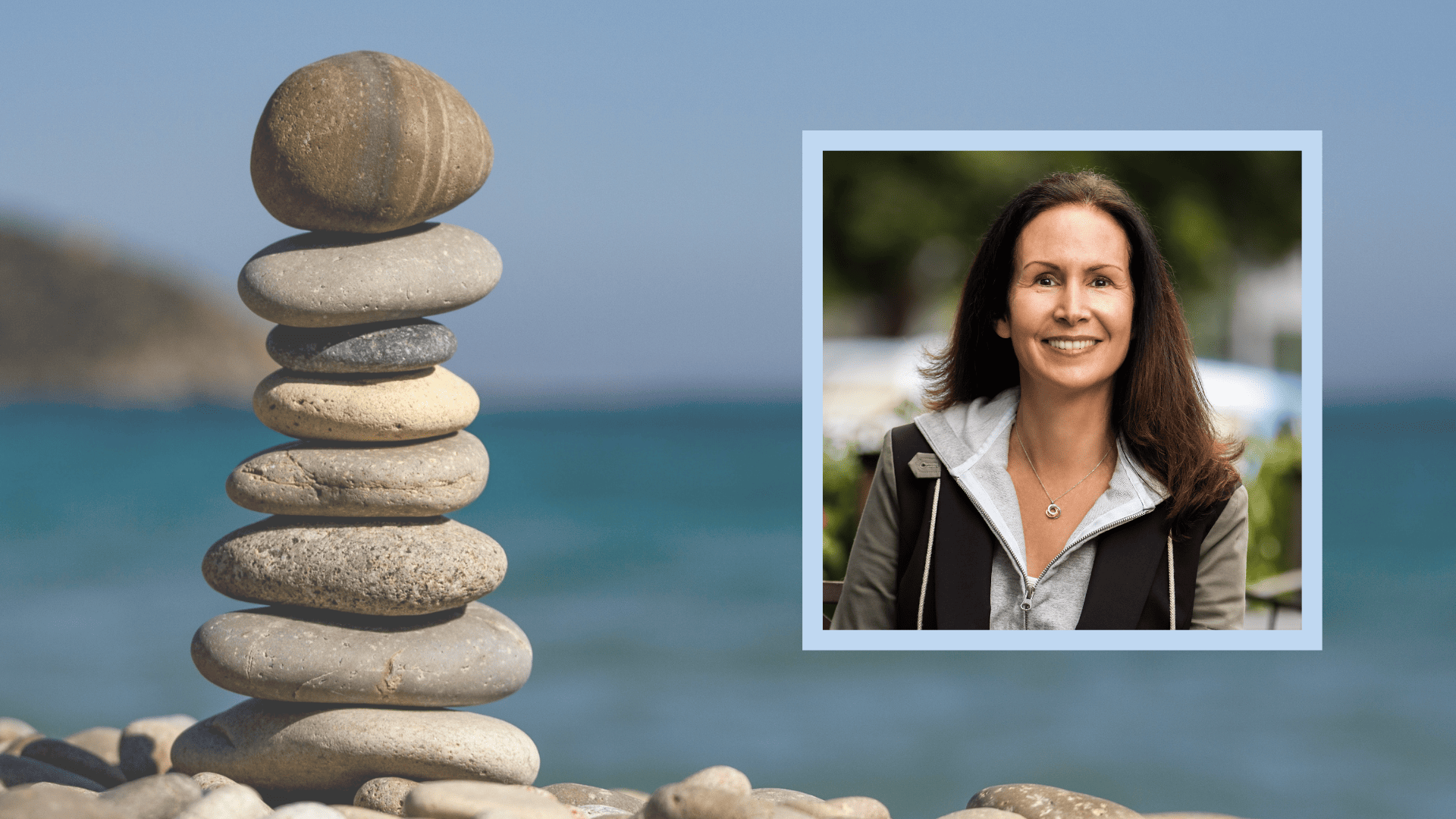If there’s one thing we understand well at Norwest it’s value creation. Case in point: Lisa Ames was delivering so much value to our portfolio companies as a marketing advisor and operating executive that we tapped her to become our very first CMO. The good news is she accepted. The better news is she’s continuing in her operating exec role and her new title incorporates both: Principal, CMO & Operating Executive. A two-for-one – talk about value!
We sat down with Lisa to learn more about her business philosophy, how she views Norwest’s brand, and her passion for mentorship.
How did you come to Norwest?
The opportunity to join the firm as an operating executive came to me at a time in my career when I was ready to switch gears, to use my years of marketing experience to help companies be more successful. I have worked with venture- and PE-backed B2B technology companies for more than 20 years, so I am very familiar with the dynamics and challenges of high-growth environments. Plus, I find so much satisfaction in being able to mentor people. At the same time, Norwest wanted to add to its ability to help portfolio companies build their brands and scale their businesses. So, my focus on demand generation and account-based marketing was very relevant.
Initially, it was the role of operating executive that got me to the door, so to speak. As I began collaborating with the people at Norwest, I was drawn into what I experienced as an extremely supportive, uncommonly kind, human-connected culture that also employed the smartest group of folks I’ve ever met. Those were the things that got me to walk through the door.
What are your top priorities as CMO?
I want to give Norwest the powerful brand it deserves. One of the things that struck me as I got to know everyone at the firm is that this is a group of people that achieves great things, yet they are humble and understated because they believe in doing the hard work more than getting credit for it.
I want to find a way to honor that humility while highlighting the stories of value we provide to our portfolio companies. Founders are our first priority, and we work together with them, side by side, throughout their journey. They can count on empathy, collaboration and unwavering commitment through the ups and downs of company building when interacting with Norwest.
Building trust is job one. At Norwest, we invest first in people, then in ideas and companies.
What excites you most about your dual role as CMO and operating executive?
The two roles are super integrated. As an operating executive, I work with numerous companies at once, with the goal of helping them optimize their marketing organizations, strategies, day-to-day practices, and resources. Although I’m there to mentor and guide them, I learn as much from them as they learn from me. So, every day I get the opportunity to take those insights and share them with other companies across the portfolio to help them succeed while bringing back the lessons and applying them to our marketing motion at Norwest. It’s all about making connections. I’m like a little bee, carrying pollen from plant to plant and allowing the ecosystem to flourish.
What are the key elements in Norwest’s brand?
In speaking with Norwest partners and leaders of portfolio companies to gather insights, the most consistent theme reflected back to us was this: in addition to providing capital, Norwest really leans in; we are known for our work ethic and dedication to helping our portfolio companies.
Norwest is a partner to the founders and other portfolio company leaders. We are in it together for the long haul, working side by side. We offer advice, apply our operating experience, serve as a sounding board, and make collaborative decisions at crucial junctures. I like to say that we let founders keep their hands on the reins while we join them in doing what they do best: growing their companies.
We use the term “invited guest” to describe our role, and it’s a fitting analogy. We don’t just show up with a bottle of wine for the dinner party. We are guests that help clear the table and do the dishes afterwards.
We work hard as advisors and board members, and we approach that work with quiet confidence. Think of us an Obi-Wan Kenobi, a Steve Kerr, or a Ruth Bader Ginsberg – more hustle, less hype.
Building trust is job one. At Norwest, we invest first in people, then in ideas and companies.
You also help drive Norwest’s ESG and DEI steering committee. What does that entail?
I’ve been spending an increasing amount of time focused on developing and measuring our ESG and DEI initiatives, which are high priorities for Norwest, and for me personally. As I got to know the firm and its rich legacy, it was clear that we’ve always believed in doing well by doing good. Now, we have formalized our commitment and are holding ourselves accountable to driving real change. We started to share our journey more publicly with the launch of our three DEI subgroups and Pledge to Action in June 2020 and our ESG policy in December 2021.
We are also investing in educating ourselves and our portfolio companies on how to develop ESG practices in their own businesses while embracing the reality that their number-one priority is building their products and finding a market. I want to help companies understand and believe that they can do both. Investing in ESG and DEI helps build more future-proof companies.
The most important thing we can do as a firm in this area is to start and maintain a conversation on these critical topics. There’s a lot of work still to be done; some of our companies are just now gaining an understanding of what ESG means while others are making everyday business decisions that create positive impact or minimize harm. So, we need to meet our audiences where they are.
Big change happens as a result of small, yet consistent turns of the dial. We started with baby steps and are still early in our maturity as a leader in ESG and DEI. We now have a set of accomplishments that we’re proud of and that we want to continue building on, both internally at Norwest and with our portfolio companies. For instance, we are incorporating language into our term sheets that speaks to our hope for continued values alignment with our companies.
This commitment to ESG and DEI is an example of the value we put on partnering with like-minded founders and CEOs. Ensuring that alignment from the start means we’re not demanding that they adopt certain ESG and DEI actions but supporting them on their journeys.
Tell us about your role as a mentor for Women in Revenue and Santa Clara University Bronco Venture Accelerator.
Both organizations hold values that align with mine and they generously offered me the opportunity to mentor their members. I have always been an advocate for women in business so it’s a natural fit for me to collaborate with Women in Revenue. With Santa Clara University, I work with entrepreneurs who are developing their ideas and turning them into viable products. I get so much energy from their enthusiasm, curiosity, and thirst for possibilities. Working with them gets me in the mindset of our target audience and helps me understand what founders and CEOs care about.
Ultimately, I think of any mentor relationship as a two-way exchange of value. I might bring more experience to the table, but they bring rookie smarts and fresh ideas that inspire me and open my mind to new perspectives. These are my formal channels for mentorship, and I also work one-on-one with several folks in my network, simply because they asked, and I’m motivated to help as many people as I can.
You call yourself a “business therapist” – how do you define that?
The cliche about leadership being a lonely job exists for a reason. Leadership can be messy. You’ve got people underneath you that expect you to have all the answers, and people above you that want the same. So, who can you talk to? Can’t go to your team to help you problem-solve since you are their leader and need to motivate and inspire them. Can’t ask your boss because sometimes your boss is part of the problem. Your therapist doesn’t have the broader business context; and your family is likely to see only your side. What you need is a business therapist.
Even though I coined the phrase partly tongue-in-cheek, it has struck a chord with people. Many of the leaders in our companies use me as that sounding board to bounce ideas around. I help them see situations from a different perspective. And I reassure them that they’re not crazy!
The value for companies is in having a thought partner, someone who understands the broader business context, but isn’t living the business day-to-day and thus can come at situations from a different altitude, without biases or emotional overlay. This is an aspect of my job that I find deeply gratifying and where I feel I can add value.

